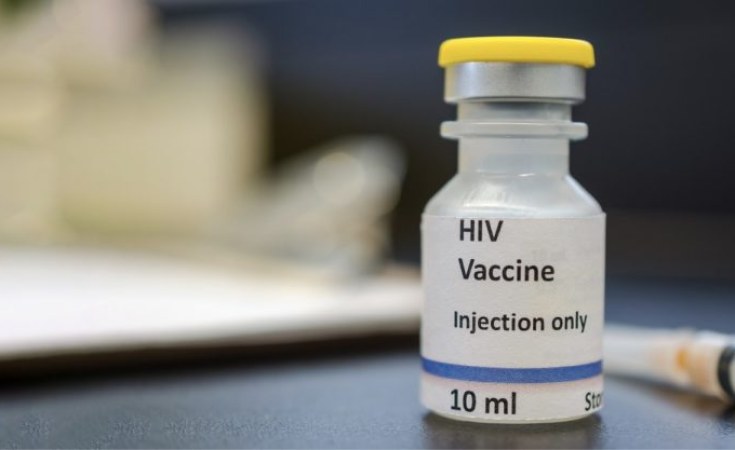Despite all the gains made in HIV response in the last few years, there is still a bit of challenge in the area of stigma and discrimination.
The National Agency for the Control of AIDs (NACA) has called for improved reportage from the media if the country is to end stigmatisation and discrimination against Persons Living with HIV (PLHIV) in the country.
Speaking during a media tour of HIV facilities in Lafia, Nasarawa State on Thursday, the Deputy Director, Public Affairs and Protocol Unit of the agency, Toyin Aderibigbe, said there is HIV fatigue in the media that needs to end for the country to achieve its goal of ending AIDs by the year 2030.
Mrs Aderibigbe said stigmatisation against PLHIV is still very high and largely underreported by the media.
She noted that the tour would offer the media the opportunity to meet with patients and caregivers while also acquiring knowledge on how to report issues surrounding HIV.
"Despite all the gains made in HIV response in the last few years, we still have a bit of challenge in the area of stigma and discrimination," she said.
"That is why we want the media to understand these challenges and do their part effectively to ensure the country wins its fight against HIV/AIDs."
An estimated 1.9 million persons are living with HIV in Nigeria, according to the 2018 Nigeria HIV/AIDs Indicator and Impact Survey (NAIIS).
Stigma, discrimination
Stigma and discrimination are considered major problems for people living with HIV/AIDS globally, including in Nigeria.
Despite the existence of HIV/AIDS (Anti Discrimination) Act of 2014, people living with HIV often experience stigma, hostility, denial of gainful employment, forced resignation or retirement, delivery of poor quality treatment and segregation in hospital wards.
This newspaper previously detailed the experiences of PLHIV and how the fear of being stigmatised has derailed them from getting treatment.
Speaking during the tour, the coordinator, Nasarawa State Agency for the Control of AIDs, Ruth Bello, reiterated that stigma and discrimination are still affecting PLWHIV in the state and the country at large.
Ms Bello said sensitisation programme is currently ongoing in the state in collaboration with traditional and religious leaders to end stigmatisation.
"For us in Nasarawa Stftate, we have a prevalence of about two per cent and we are hoping to get to zero per cent. This is why we are collaborating with traditional and religious leaders, which has helped mitigate the impact of stigmatisation on PLWHIV," she said.
"We also have the anti stigma law distributed so that people will know that if you have been stigmatised, we have a law backing you."
Act protecting PLHIV
The Act makes provision for the prevention of HIV/AIDS based discrimination and protects the fundamental human rights and dignity of people living with and affected by HIV/AIDS.
Enacted in 2014, the Act aims to deter the general public from discriminating against people living with the virus.
The Act frowns against the ill-treatment of PLHIV in health facilities, religious places, schools, job denial, and denial of access to communal places amongst others.
Part 1 (5) (1) of the Act states that: No individual, community, institution and employer or employee shall discriminate, directly or indirectly, against any person in the society based on the person's HIV status or perception of same in employment, delivery of services and other benefits.
Media tour
The anti retroviral therapy coordinator at the HIV treatment centre in Dalhatu Araf Specialist Hospital, Lafia, Nasarawa State, Esther Solomon, said every activity, including testing, counselling and treatment takes place at the facility.
Ms Solomon said the centre currently has over 5,000 patients.
She said the centre also serves as a hub, providing support to other centres within the state.
"We are a big centre that provides support and services to smaller centres including general hospitals, primary healthcare centres and private healthcare facilities. And because we are a comprehensive centre, we offer all the specialised care like pediatric ART and PMTCT and of course adult ART for adults that come to the facility," she said.
She said some persons come to the centre voluntarily to access treatment while others come through provider initiated testing at the various service provision points in the hospital.
She noted that the hospital has about 10 testing points where patients are tested and enrolled for care if found positive.
"We have about 10 testing points at different wards, units and service delivery areas where people are tested and when they are found to be positive, they are sent to the HIV treatment centre where we provide comprehensive counseling and enroll them for care."
Ms Solomon, however, lamented that some patients halt their treatment due to stigmatisation from friends, families, colleagues and others.
She said there is an urgent need for more awareness to educate the people about HIV and the importance of treatment.


